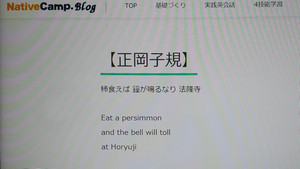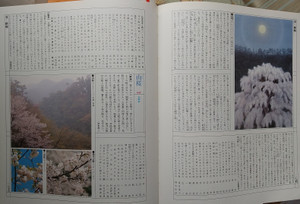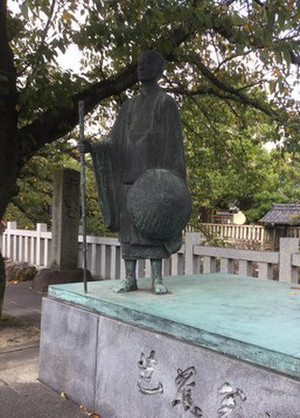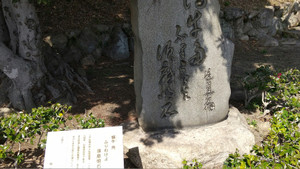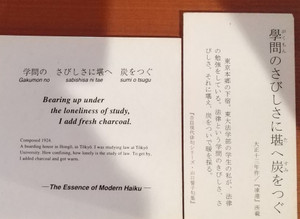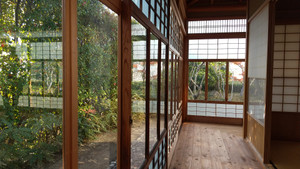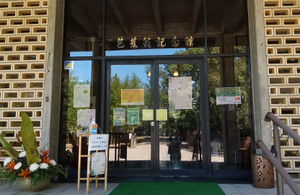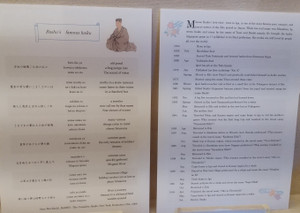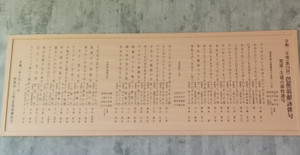衰ひや歯に喰ひ当てし海苔の砂
(otoroi-ya ha-ni-kuiateshi nori-no-suna)
(161/300)
waning teeth_
noticed upon biting
a grain of sand in the laver
姥桜咲くや老後の思ひ出
(ubazakura saku-ya-rō-go-no omoi-ide)
(162/300)
ubazakura in bloom_
causing me to think of
life in old age
世を旅に代掻く小田の行きもどり
(yo-o-tabi-ni shirokaku-oda-no iki-modori)
(163/300)
life on journey_
like plowing for rice-planting
back and forth in small paddy fields
春や来し年や行きけん小晦日
(haru-ya-kishi toshi-ya-ikiken kotsugomori)
the spring has come_
has the year gone?
Kotsugomori
(注)
例年なら、「立春」は「大晦日」(陰暦12月30日)ですが、芭蕉は、「立春」が「小晦日」(陰暦12月29日)に当たり、例年ならまだ立春でないことを面白く俳句で表現したのでしょう。
この解釈が誤りであれば、問題点を指摘して、この俳句の正しい解釈を教えて頂けると幸甚です。
何の木の花とはしらず匂哉
(nannoki-no hana-towa-shirazu nioi-kana)
(165/300)
what tree in bloom?
unknown to me,
so strong a scent
草臥て宿かる比や藤の花
(kutabire-te yado-karu-koro-ya fuji-no-hana)
(167/300)
exhausted,
time to seek an inn_
wisterias in bloom
香に匂へうに掘る岡の梅の花
(kani-nioe uni-horu-oka-no ume-no-hana)
(167/300)
Smell fragrant!
plum trees
on the peat-digging hill
蝶鳥の浮つき立つや花の雲
(chō-tori-no uwatsuki-tatsu-ya hana-no-kumo)
(168/300)
butterflies and birds,
buoyant_
clouds of cherry blossoms
鶯や餅に糞する縁の先
(uguisu-ya mochi-ni-funsuru en-no-saki)
(169/300)
a bush warbler,
droppings fallen on rice-cakes
at the edge of wooden veranda
海は晴れて比叡降り残す五月哉
(umi-wa-hare-te hiei-furi-nokosu gogatsu-kana)
(170/300)
the sky cleared up over the lake,
still raining at the Mount Hiei_
such a May
(注)
「such a May」は、芭蕉が「五月かな」と「琵琶湖の5月の気象の特異性」を詠嘆したと解釈して、敢えて不定冠詞「a」をつけて、強調表現にしました。
青色文字をタップすると、最新の「俳句(和文)」や「英語俳句」の記事をご覧頂けます。
トップ欄か、この「俳句HAIKU」をタップすると、最新の全ての記事(タイトル)が表示されます。
記事のタイトルをタップ(クリック)して、ご覧下さい。
